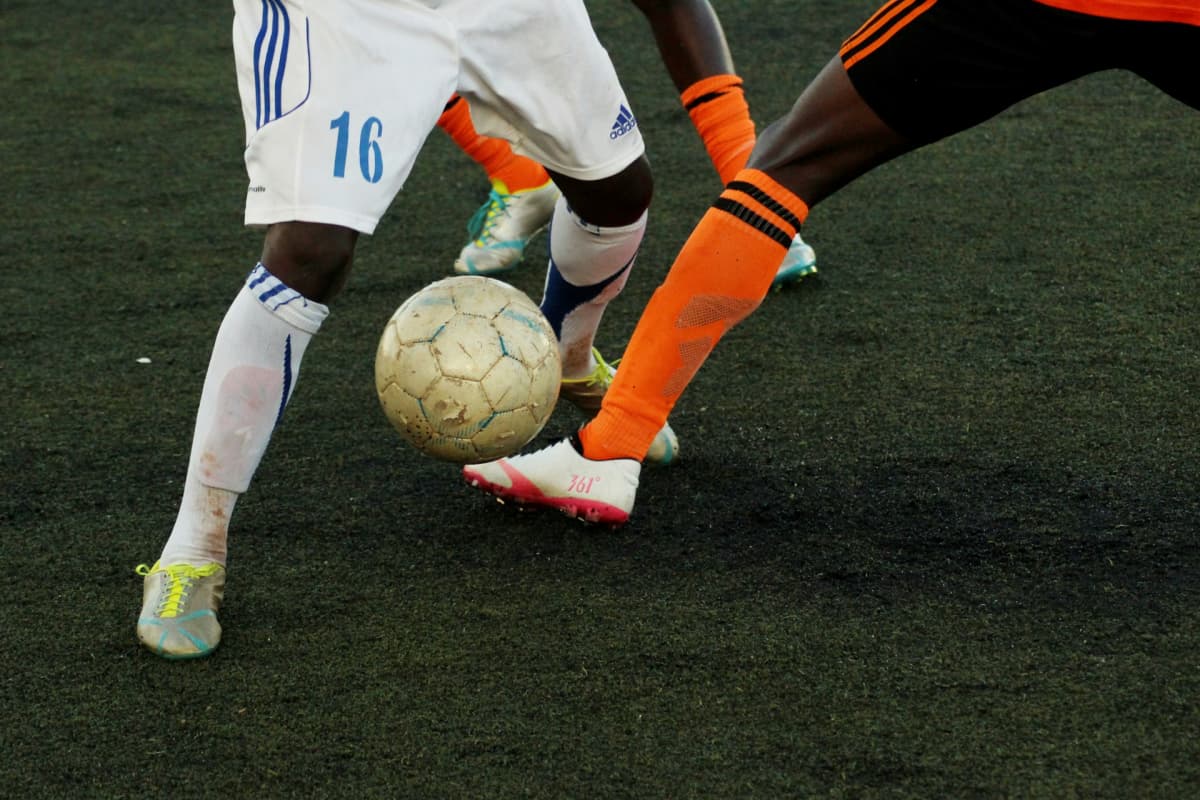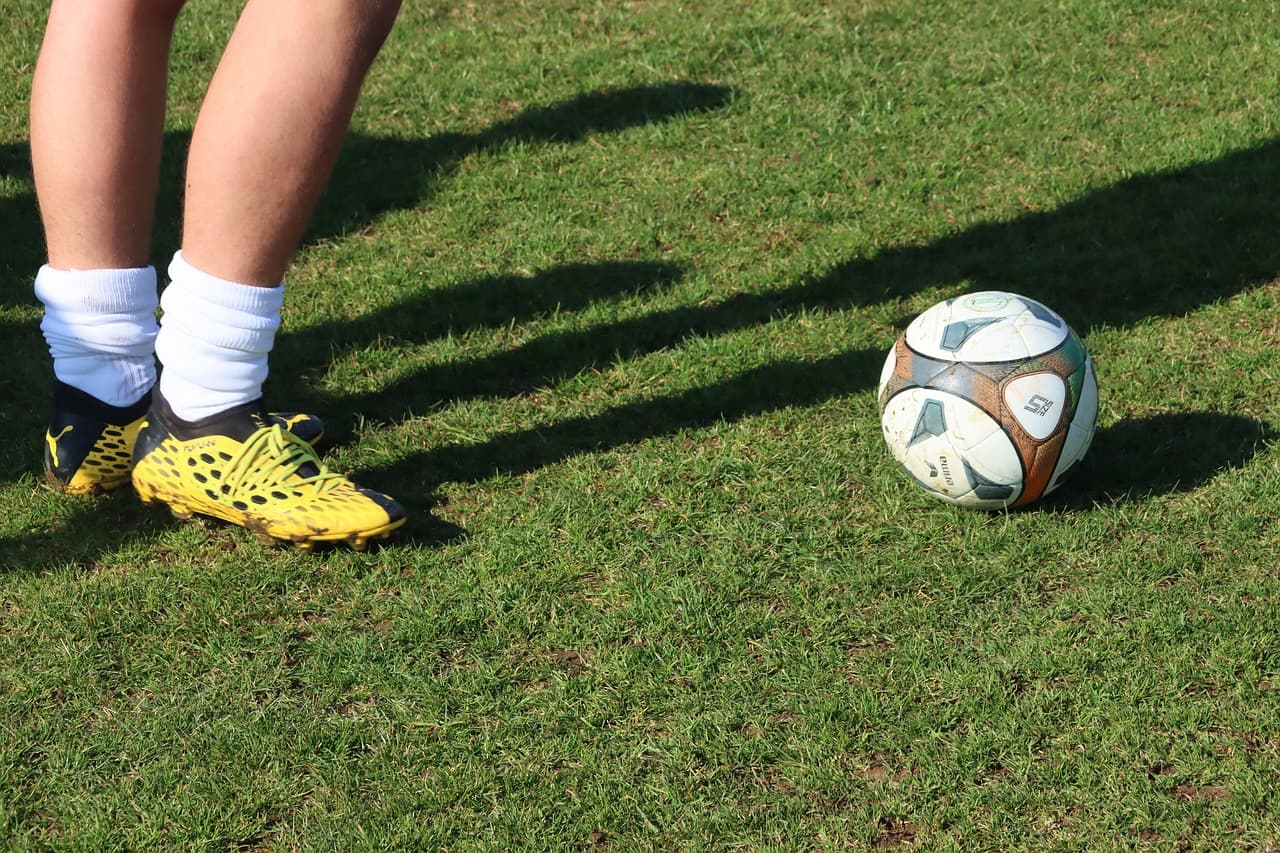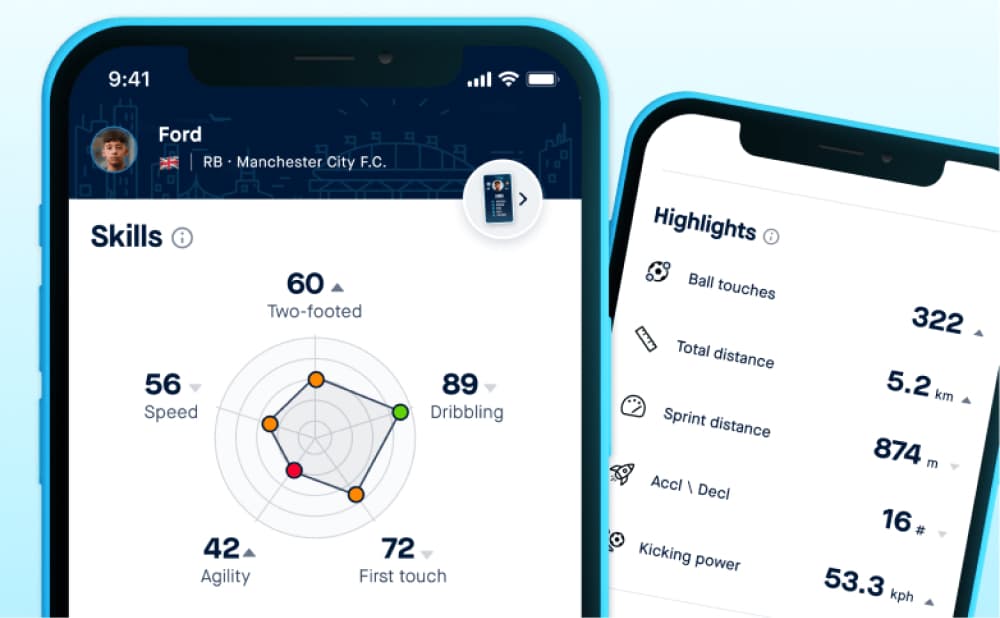Confidence is essential to becoming an outstanding soccer player. It will help you take calculated risks, make decisive plays, and bounce back from common setbacks.
High confidence also enables you to remain composed under pressure in any situation on the pitch.
However, being a confident soccer player isn’t always simple.
You need data on your performance to help build your confidence, and Playermaker’s cutting-edge technology provides exactly that.
In this article, we’ll explore practical strategies to build and maintain the confidence needed to perform at your highest potential:
Importance of Confidence in Soccer
Why Confidence Matters on the Field
Confidence is the basis of a strong performance in soccer. When you feel confident, you can take calculated risks and trust your instincts. You also make the quick decisions need to turn a match in your favor.
In addition, confidence lets you focus on the flow of the game rather than second-guessing your every move. This leads to better play and greater enjoyment.
Impact of Confidence on Performance
Confidence influences how you perform during games. If you build up your confidence, you’ll be more resilient under pressure. You’ll also be better at communicating and executing skills.
On the flip side, low confidence can lead to hesitation, fear of making mistakes, and a decline in performance. This is the difference between winning and losing in many cases.
Common Confidence Challenges for Players
Many young soccer players struggle with confidence at various points in their careers. Here are the common confidence challenges:
- Fear of Failure: Worrying about mistakes or letting the team down can create anxiety. Once you start to fear failure, it’s highly challenging to perform at the highest level.
- Pressure to Perform: The expectation to consistently play well can lead to stress and a lack of self-assurance. One of the biggest differences between proffessionls and ameauter players is the ability to soak up pressure.
- Comparison with Other Players: Constantly comparing yourself to teammates or opponents can make you doubt your abilities.
- Negative Self-Talk: Internalizing critical or pessimistic thoughts can erode confidence and impact your game.
Recognizing Signs of Low Confidence
Low confidence in soccer can manifest in many ways, but they can be equally detrimental to your performance.
Here are some prime examples:
- Lack of Communication: You may avoid speaking up or directing teammates during the game—which leads to disjointed play.
- Playing it Safe: You may also choose the safest option rather than taking risks that could lead to greater rewards.
- Inconsistent Effort: Showing less hustle, determination, or willingness to chase after loose balls.
- Easily Discouraged: The most confident players never give up, even if they’ve performed terribly for 85 minutes. Becoming easily discouraged is a clear sign of low confidence, something players like Ronaldo never show.
- Avoiding Responsibility: Shying away from key roles or situations, such as taking free kicks, penalties, or leading an attack, are examples of bad confidence.
- Overthinking: The best soccer players never overthink. Spending too much time second-guessing decisions leads to slow reactions and missed opportunities.
- Lack of Enthusiasm: Displaying less passion or excitement for the game, both in practice and during matches, could be a sign your confidence has dipped.
However, understanding these signs allows you and your coaches to address the issue before it truly impacts your performance.
Building Confidence Through Practice
Although mental techniques are essential, real confidence comes from consistent practice and skill development. Remember, the more you practice—the more comfortable you’ll become.
Here are some ways you can grow your condfidence:
1. Consistent Training Routines
Developing consistent training routines is critical to improving your confidence. For instance, it sharpens your skills and reinforces your mental toughness. If you witness your skills improving during regular training programmes, you’ll feel better during matches.
2. Skill Development Drills
To play soccer with confidence, master the fundamental skills of the game. You can focus on specific drills that target your weak points, whether it’s dribbling, passing, shooting, or defending. As you see improvement in these areas, your overall confidence will naturally increase.
3. Simulating Game Scenarios
One of the best ways to prepare for games is to simulate game scenarios during practice. If okay to make mistakes in practice aslong as you don’t make them during games. The game scenarios include practicing under pressure, making quick decisions, and working on situational plays.
4. Tracking Progress and Celebrating Small Wins
Monitoring your progress is fundamental for maintaining confidence. You should keep track of your improvements, whether it’s in your physical fitness or skill levels. You must celebrate these small victories because they serve as reminders of how far you’ve come.
Tools like Playermaker, which tracks your performance metrics, can be invaluable in this process. It helps you visualize your progress and stay motivated.
Handling Pressure and Setbacks
Dealing with Mistakes
Mistakes are a natural part of soccer. That said, how you respond to them can significantly impact your confidence. Instead of dwelling on errors—use them as learning opportunities.
A quick mental reset after a mistake helps you stay focused. Remember, even the best players in the world make mistakes.
Recovering from Injuries
Injuries can be a major setback for any soccer player. They affect physical abilities and confidence.
During recovery, you must stay mentally strong and focus on what you can control. Examples include rehabilitation exercises and mental conditioning.
However, patience and persistence are key. So is maintaining a positive mindset throughout the recovery process.
Managing Game-Day Nerves
Nervousness before a game is natural, but don’t let it undermine your confidence. You can use techniques like deep breathing, visualization, and sticking to your pregame ritual to manage these nerves.
Moreover, embrace the excitement of game day and channel your energy into your performance.
What Should I Do If I Lose Confidence After a Bad Game?
Firstly, every soccer player has bad matches—even Messi and Ronaldo. Experiencing a dip in confidence after a bad game is normal.
The key is to avoid letting one poor performance define you.
Instead, reflect on what went wrong and don’t dwell on it. Focus on your strengths and the aspects of the game that you can improve. Getting back to your training routine with new goals may restore your confidence quickly.
Here are some of things you can do:
- Analyze the game objectively: You should watch footage of your performance or discuss it with a coach. This will help you identify specific areas for improvement without being overly critical.
- Focus on strengths: You must remind yourself of what you do well and how those strengths have helped you previously.
- Set new goals: You should establish small, achievable objectives for your next practice or game.
- Return to training: It’s key to dive back into your regular training routine by emphasizing consistency and gradual improvement.
- Practice positive self-talk: You should replace negative thoughts with constructive affirmations to rebuild your mindset.
Building a Support System
1. Role of Coaches and Mentors
Your coaches and mentors play a vital role in building a player’s confidence. A supportive coach can provide valuable feedback, encouragement, and strategies to help you overcome challenges. However, don’t hesitate to seek guidance from those who have more experience.
2. Support from Teammates
A strong team culture can boost individual confidence. You should also encourage open communication with your teammates and celebrate each other’s successes. When you know your teammates have your back, you’re more likely to play confidently.
3. Family and Friends
The support of family and friends is important. They can offer encouragement, perspective, and a reminder of your strengths when your confidence is low. The best soccer players in the world always surround themselves with a reliable support group.
Final Thoughts
Improving confidence in soccer is a journey. It involves mental and physical preparation. You must undergo positive self-talk, visualization, and practice consistently.
But remember, confidence isn’t built overnight. It’s the result of ongoing effort, perseverance, and belief in your abilities. The key is to never give up.
Playmakers award-winning soccer tracker gives you data on shooting, dribbling, and passing to help you gauge your skills and develop confidence.








